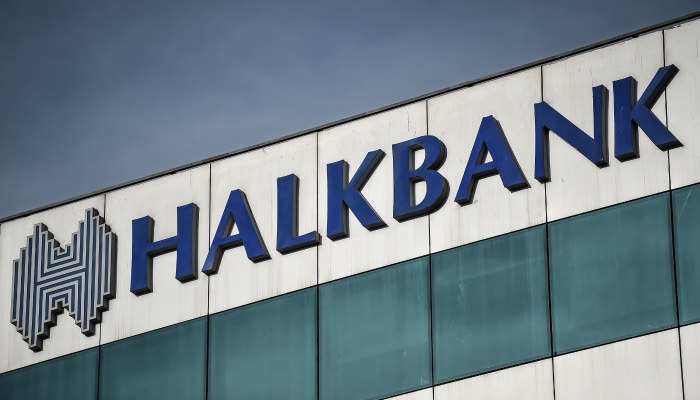Turkey could plunge into an economic crisis like one that occurred in 2001 if a United States court rules that Turkish state lender Halkbank is guilty of helping Iran evade US sanctions, according to a report by German news magazine Der Spiegel published on Friday.
Halkbank, one of Turkey’s biggest banks, has been under investigation by US prosecutors since 2018, when it was accused of using its currency businesses and front companies to transfer $20 billion in oil revenue to Iran — which was restricted by Washington’s sanctions against the Islamic Republic.
In March 2020 Halkbank pleaded not guilty to bank fraud, money laundering and four conspiracy charges.
The dispute has caused tension in US-Turkish relations, and nine people have been criminally charged.
They included former Halkbank executive Mehmet Hakan Atilla, who was convicted in January 2018 after another defendant, wealthy Turkish-Iranian gold trader Reza Zarrab accepted a plea deal and testified against him.
Atilla returned to Turkey last year after leaving prison and became general manager of the İstanbul Stock Exchange.
“In the worst-case scenario,” the Der Spiegel report said, citing observers, “if Halkbank is found guilty it could be facing a fine of up to $20 billion or exclusion from the SWIFT international banking system. That would mean that one of Turkey’s largest banks would no longer be able to participate in international financial transactions. And that would likely mean the end of the bank.”
According to the German news outlet, this would amount to something of a death blow as the Turkish economy is already mired in crisis.
Halkbank’s bankruptcy would result in hundreds of thousands of investors in Turkey losing their savings and the lira plunging even further.
“Economists warn that the entire Turkish financial industry could collapse, just as it did in 2001, when hundreds of thousands of people were essentially plunged into poverty overnight,” the report said.
Erdoğan’s role in the case
Two men with close ties to Turkish President Recep Tayyip Erdoğan’s inner circle – Zarrab and Atilla – were charged with conspiring to violate US sanctions on Iran and other offenses.
“Erdoğan was alarmed when he learned of the investigation in the United States. And it must have been clear to him that legal proceedings against Halkbank wouldn’t just be a drag on the Turkish economy. It would also expose him to the global public,” the Der Spiegel report said.
The report also pointed out former US President Donald Trump’s efforts to intervene in the case, revealed in the memoir of former National Security Adviser John Bolton.
According to excerpts from “The Room Where It Happened,” Bolton claimed that at a meeting in 2018 in Argentina, Erdoğan gave Trump a memo from the law firm representing Halkbank, insisting that the bank was innocent of the charges against it.
“Trump then told Erdogan he would take care of things, explaining that the Southern District prosecutors were not his people but were Obama people, a problem that would be fixed when they were replaced by his people,” Bolton said in the book.
Democratic Senator Ron Wyden said at the time that Bolton’s book provided “damning evidence” corroborating the findings of his own investigation that “Donald Trump attempted to interfere in a criminal investigation into the largest sanctions violations scheme in US history as a favor” to Erdoğan.
Halkbank faces incriminating evidence
“The evidence incriminating Halkbank appears to be overwhelming,” Der Spiegel said. “Gold trader Zarrab has issued a sweeping confession and investigators also have access to documents that a Turkish police officer secretly turned over to the US in 2017.”
The trial had been set to begin on March 1; however, an appellate court granted a temporary stay to allow for a panel of judges to hear bank requests on an expedited basis to determine whether a court in New York has jurisdiction over a Turkish financial institution. However, experts view this determination as little more than a formality, according to Der Spiegel.

